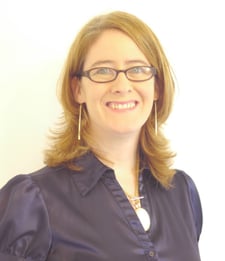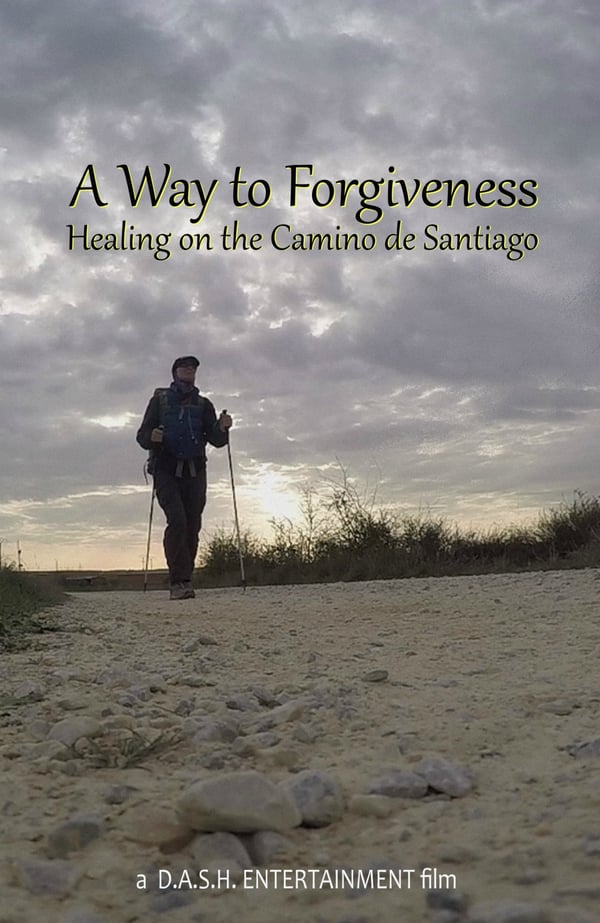When you've been hurt, your gut instinct may be to lash out - with words or maybe even fists. How could she/he have done such a thing? That person deserves nothing good in this life, right? It seems fair to make that person for what she/he did. And yet, one pesky lesson of Jesus so often creeps up in situations of conflict - forgive.
[Tweet "One pesky lesson of Jesus often creeps up in situations of conflict: forgive. By @DASH_Entertain"]
How do you forgive someone? How do you stop feeling angry or resentful and stop blaming them? I asked myself the same questions when my husband of 12 years left me. I won't go into details, but suffice it to say I was hurt. No, hurt is too small of a word to encapsulate my state of being. I was distraught and would collapse under the immense weight of the pain as I just tried to walk through my house.
Yet, two years later, here I stand with a forgiving heart. In my effort to learn to forgive, I walked 550 miles across Spain on the Camino de Santiago, a centuries-old Catholic pilgrimage. In 40 days of walking (yes, I chose that number specifically) I talked to fellow pilgrims and came to forgive, not only my ex-husband, but myself. If you don't feel up for quite that long of a walk, here's what I learned. Here are four simple steps to forgiveness:
- MAKE A CHOICE. Forgiving isn't the knee-jerk reaction to being hurt. It is a choice. When the wound is still fresh, that may be as far as you get - to say that you would like to, at some day in the future, forgive the person who hurt you. It's okay if that's as far as you get for a while. I was there for a good seven months before I made another move. You've made the first step – you made the choice.
- SURRENDER. You probably want to hear the other person say, “I'm sorry.” They might not. You may want them to change their behavior. They might not. You may feel that they should suffer consequences for their actions. They might not. You have to surrender. Let go of trying to control the situation and, especially, the other person. All you can control is yourself. To go even further, you have to surrender your pain, your victim mentality. It can feel good to swim in your sorrow, to stew in the memory of how you've been hurt, but you have to give that up if you want to heal. I've been there. With every step on the Camino, the physical pain I was enduring matched my emotional pain. But I needed to give it up. And the biggest surrender is actually to surrender the entire situation to God. Forgiveness is a big ask. We are called by God to forgive but he doesn't need us to do it on our own. Every day I woke up to walk 13 miles on the Camino, I prayed for God to heal me. I had to give up solving my own problem and daily beg God to take away the hurt. I know I only got there through the grace of God.
- ALLOW TIME TO PASS. There's a reason people say “time heals all wounds.” Because it's true. We live in an instant gratification culture, so people don't like to hear the tough news that some things still take time. There's no getting around it. Embrace it. Time creates distance from the hurt, cools tempers, and even allows you an opportunity to reflect on your own behavior that may have contributed to the situation. Go easy on yourself. Forgiveness – be it of self or of another - is hard work, so don't feel like you need to rush to a finish line.
- REPEAT. Forgiveness isn't a destination, it's a way of life. You don't just forgive someone once, you forgive them every day for the rest of your life. Something new may come up with that person or just a memory will get triggered and you have to keep living in that forgiveness. You'll have to keep surrendering and keep letting time march forward. Days after I returned home from my walk on the Camino, I had to go to divorce court. I had to remember what I had been through and actively choose to be in a positive mindset as I sat across the table from my former husband.
These four steps may have simple words, but they're certainly not easy. Forgiving can be very tough but it beats the alternative – living in anger and resentment while the other person goes on living their life.
If you'd like to see forgiveness in action, you can see my journey unfold in the 45-minute documentary called “A Way to Forgiveness, Healing on the Camino de Santiago.” I documented my experience struggling to forgive and heal and recorded wonderful conversations with new friends about forgiveness. The short documentary film is available on DVD or as a digital download at D.A.S.H. Entertainment, LLC.
Copyright 2016 Erin Dooley
 About the author: Erin Dooley is an award-winning screenwriter and filmmaker. While she doesn't exclusively write and film faith-based material, many of the stories she tells stem from her Catholic faith. Erin has a number of short films available on her website, D.A.S.H. Entertainment, LLC, and is releasing a second feature film.
About the author: Erin Dooley is an award-winning screenwriter and filmmaker. While she doesn't exclusively write and film faith-based material, many of the stories she tells stem from her Catholic faith. Erin has a number of short films available on her website, D.A.S.H. Entertainment, LLC, and is releasing a second feature film.
About the Author

Guest
We welcome guest contributors who graciously volunteer their writing for our readers. Please support our guest writers by visiting their sites, purchasing their work, and leaving comments to thank them for sharing their gifts here on CatholicMom.com. To inquire about serving as a guest contributor, contact editor@CatholicMom.com.



.png?width=1806&height=731&name=CatholicMom_hcfm_logo1_pos_871c_2728c%20(002).png)
Comments